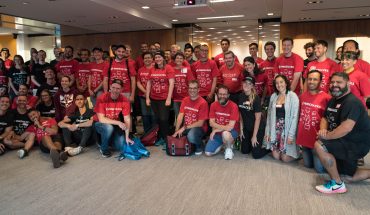
Shiela Mie Legaspi, President, Cyberbacker
As a minority woman in a leadership position for a global company, Shiela Mie Legaspi, president of Cyberbacker, offers a unique perspective to addressing diversity and harnessing the excellence of global talent.
“The concept of a Cyberbacker goes beyond the traditional virtual assistant role,” explained Legaspi. “We define a Cyberbacker as someone who has your back, and this philosophy underlines our commitment to creating strong, lasting partnerships with business owners.”
“Founded by Craig Goodliffe, our organization has placed over 3,000 Cyberbackers, offering profit-sharing opportunities and a competitive wage to maintain a comfortable lifestyle in the Philippines. We provide extensive training, supporting business owners with industry-leading talent to handle administrative tasks such as SEO, social media management, appointment setting, and more.”
“As companies embrace remote work, Cyberbacker is at the forefront, providing cost-effective virtual assistance services and fostering partnerships for mutual growth. In essence, we are not just a service provider but a catalyst for positive change, connecting skilled workers with opportunities and supporting business owners on their growth journey.”
I asked Legaspi how small and large businesses make global work teams thrive. Legaspi replied, “To best manage and capitalize on remote, global work teams, employers should leverage the rising trend of global talent. Embrace diversity, use effective technology, implement flexible work policies, prioritize global talent development, promote cultural sensitivity, ensure clear communication, conduct regular check-ins, foster diversity and inclusion, establish performance metrics, and organize virtual team-building activities.”
Cultural and communication tips for remote teamwork
“For high-performance, remote teams, fostering an inclusive culture and effective communication is paramount,” stated Legaspi.
“One key strategy is to encourage active listening, creating an atmosphere where team members can openly share diverse perspectives and ideas. Recognizing that cultural competence is an ongoing journey, continuous education initiatives are vital to expose the team to diverse cultures, practices, and communication styles,” remarked Legaspi.
Added Legaspi, “Open dialogues play a crucial role in addressing cultural differences, allowing team members to discuss misunderstandings and share insights proactively. Embracing diversity and celebrating the unique strengths of individuals from different backgrounds contribute to a vibrant team culture.”
“Moreover,” shared Legaspi, “understanding and appreciating varied communication styles across cultures is essential. Encouraging flexible communication approaches enhances collaboration and ensures effective interaction within the team.”
“By incorporating these practices, remote tech teams can nurture cultural competence, creating an environment conducive to effective collaboration and ultimately driving success,” said Legaspi.
Cultural awareness and inclusiveness are critical in today’s global economy.
“I deeply appreciate the significance of cultural awareness and inclusiveness in today’s global economy, especially in my role as president of Cyberbacker,” share Legaspi. “At Cyberbacker, where our team members collaborate seamlessly across the Philippines and the United States, we prioritize fostering inclusivity across diverse cultures.”
“Our commitment to cultural competence extends beyond mere rhetoric; it is a fundamental aspect of our organizational ethos,” explained Legaspi. “We actively encourage an inclusive workplace that not only values but celebrates the diverse perspectives, skills, and ideas that our global team brings to the table. In a service-oriented industry like ours, characterized by team members and clients from various backgrounds, understanding and respecting cultural nuances are pivotal in establishing meaningful and effective business relationships.”
Stated Legaspi, “I firmly believe that cultural competence is an ongoing journey. Through initiatives such as open dialogues, active listening, and continuous education, we create an environment where individuals from different cultures feel not only acknowledged but empowered to contribute their unique strengths.”
“Acknowledging my own privileges and biases, I advocate for self-critique as an essential aspect of cultural competence,” Legaspi elaborated. “By comprehending the diverse perspectives within our team, we strive to build empathy, compassion, and an environment that cherishes every individual’s distinctive experiences.”
“In essence,” said Legaspi, “my experience and business acumen revolve around cultivating cultural awareness, fostering inclusivity, and harnessing the myriad benefits of a diverse and empowered team in the dynamic realm of service-based businesses.”
-30-
More on diversity and inclusivity



